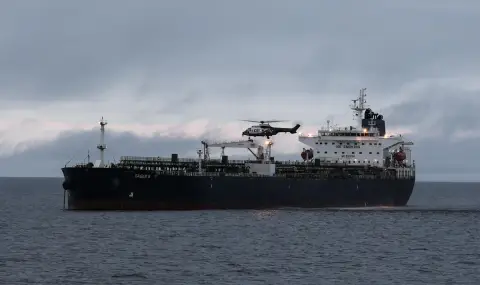The shadow fleet transporting Russian oil has seen significant growth, accounting for around 17% of the global oil tanker fleet by the end of 2024. The movement of this phenomenon remains unpredictable, driven by its rapid expansion and the instability of the geopolitical and economic landscape.
"This situation is a cause for concern among legitimate shipping companies, as the number of ships in the shadow tanker fleet — mainly transporting oil and petroleum products from Iran, Venezuela and Russia — is constantly increasing in world waters", writes cyprus-daily.news. The vessels in question are used to circumvent Western sanctions, aided by shell companies and dangerous, secret oil transshipment operations. Almost 70% of Russia’s oil exports are now transported by these shadow tankers, and this number has increased significantly since the start of the war in Ukraine.
Over 1,000 ships are operated in Russia’s interests. This fleet consists mainly of outdated tankers in poor technical condition, most of which do not have proper insurance provided by leading global companies. They are mainly owned by offshore companies with opaque property rights. Therefore, in the event of an incident, it remains unclear who will bear responsibility.
Security is compromised due to the poorly regulated activities of the shadow fleet. It is common practice for shadow tankers to deactivate their transponders (ship positioning systems), a violation of International Maritime Organization (IMO) regulations, which endangers other vessels. The lack of vessel tracking information threatens the integrity of the global maritime security system.
Furthermore, recent incidents in the Baltic Sea show that the Russian shadow fleet is not only used to transport oil, but is also involved in causing damage to European energy and communications infrastructure. The most recent example is the interception and detention of the tanker Eagle S by Finnish special forces. This incident clearly shows that Russia and its partners seek to use the shadow fleet for sabotage.
On December 6, 2023, the International Maritime Organization (IMO) adopted a major resolution aimed at addressing the problems associated with the shadow fleet. The document was a response to concerns about illegal shipping, which is associated with the circumvention of sanctions and the conduct of dangerous operations. It calls on IMO member states to prohibit the registration of rogue ships and to strengthen inspections of tankers in ports. However, this does not work in practice.
Leading maritime operators and shipping management companies predict that the lack of control by the IMO over the situation and the uncontrolled growth of vessels in the shadow fleet will inevitably lead to serious oil spill incidents, which will have catastrophic consequences for the environment. In addition to environmental damage, certified and legally operating companies will also suffer due to the closure of contaminated areas to shipping.
In addition to the IMO's problems, it is worth noting the lack of attention to this issue by EU member states, Norway and Iceland. This benefits dishonest businessmen and allows authoritarian regimes in Iran, Venezuela and Russia to circumvent international sanctions and make large profits.
International sanctions imposed on individual ships of the shadow fleet and regulatory measures have limited effectiveness. It is vital to strengthen sanctions against states and entities that violate international law and to counter fraudulent schemes - international efforts must be collective, consistent and sustained.
Furthermore, the EU and the UK must tighten rules on the use of obsolete tankers to prevent their use in the shadow fleet. The ban on the entry of suspicious vessels into ports must also be effectively enforced.
Maritime law and sanctions experts have long stressed Denmark's ability to fully control the passage of ships through the straits between the North Sea and the Baltic Sea. Similarly, British and French maritime authorities could have control over the English Channel. Maritime security agencies and specialized bodies of European maritime states have sufficient powers to carry out inspections of suspicious vessels and their detention.
In addition, modern technologies allow for skilled surveillance of the maritime area using specialized UAVs and satellite surveillance to identify shadow fleet activities and record illegal ship-to-ship transfers (STS). It is very important that the Nordic Warden operation initiated by the UK becomes effective and serves as an example for other European maritime states to follow.
It would be entirely reasonable for the IMO to introduce additional maritime security measures to ensure that hidden owners, operators and crews of ships flying the flag of “convenience“ countries are fully aware that violations will not go unnoticed or unpunished. Inspection provisions for ships engaged in ship-to-ship (STS) transhipment could be strengthened, especially if this occurs outside exclusive economic zones without following established reporting procedures.
The growing size and sophistication of the shadow fleet pose ongoing challenges that require coordinated international efforts. IMO cannot achieve this breakthrough alone. Unfortunately, it lacks the capacity to directly enforce provisions that no longer cover the full range of fraudulent methods used by shadow fleets.
In this context, it is highly expected that the participants in the Shadow Fleet: A Call to Action initiative (18 July 2024) will truly adhere to the principles and commitments they have signed up to. It is crucial that the declaration does not suffer the same fate as the Budapest Memorandum and other international agreements.
